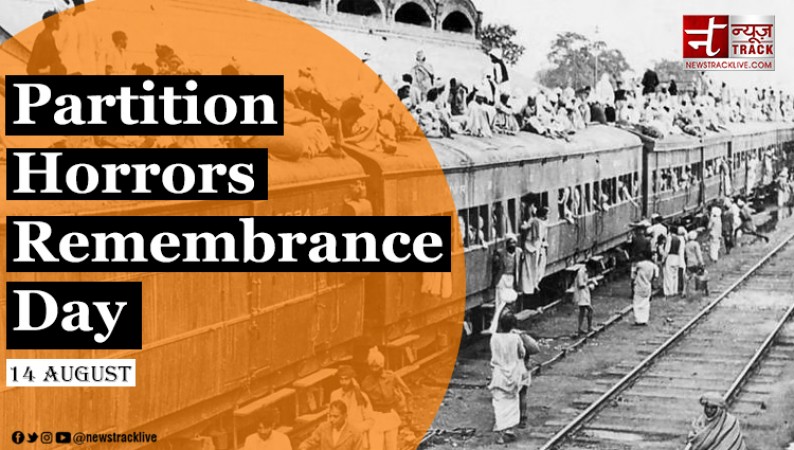
Every year on August 14, a somber and reflective day known as Partition Horrors Remembrance Day is observed. This day serves as a poignant reminder of the catastrophic events that unfolded during the partition of the Indian subcontinent in 1947. The partition, which led to the creation of India and Pakistan, resulted in immense human suffering, displacement, and communal violence. Partition Horrors Remembrance Day is an occasion to honor the memories of those who lost their lives, homes, and loved ones during this tumultuous period and to ensure that such a tragedy is never forgotten.
Understanding the Partition: A Dark Chapter in History: The partition of India in 1947 is considered one of the most tragic and traumatic episodes in modern history. The division of the Indian subcontinent into two separate nations, India and Pakistan, was accompanied by mass migration, widespread violence, and loss of life. The British colonial rulers decided to end their rule over India, which had been marked by growing tensions between the Hindu and Muslim communities. The division was based on religious lines, with India being predominantly Hindu and Pakistan intended to be a homeland for Muslims.
The partition led to a series of horrifying events: riots, massacres, forced conversions, and forced migrations. Millions of people were uprooted from their ancestral homes, and communities that had coexisted for centuries turned against each other in the face of sectarian violence. The bloodshed and pain experienced by individuals on both sides of the border were immeasurable. Families were torn apart, and entire villages were ravaged.
Commemorating the Tragedy: Why Partition Horrors Remembrance Day?
Partition Horrors Remembrance Day holds great significance in acknowledging the profound impact that the partition had on millions of lives. The day is observed to remember the countless individuals who suffered and lost their lives during this period of turmoil. It is also an occasion to pay tribute to the resilience and strength displayed by survivors as they rebuilt their lives in the aftermath of the tragedy.
Through remembrance, the society aims to ensure that the lessons from history are not forgotten. It serves as a stark reminder of the consequences of divisive policies and the dangers of communal tensions. By acknowledging the pain and suffering of the past, communities can strive for unity, tolerance, and understanding in the present and the future.
Observance and Activities: On Partition Horrors Remembrance Day, various activities are conducted to honor the memories of those who suffered during the partition. These may include:
Candlelight Vigils: Vigils are held to commemorate the lives lost and to symbolize hope for a harmonious and peaceful future.
Memorial Services: Religious and non-religious memorial services are organized to remember the victims and offer prayers or thoughts for their souls.
Educational Programs: Seminars, workshops, and discussions are conducted to educate people, especially the younger generation, about the partition's history and the importance of preventing such events in the future.
Artistic Expressions: Poetry readings, art exhibitions, and cultural events are held to convey the emotional impact of the partition through artistic means.
Community Gatherings: People from different backgrounds come together to share stories, experiences, and perspectives, fostering unity and understanding.
Looking Forward: Lessons from History: As the world progresses, it is essential to remember the past, not only to honor the sacrifices made by those who came before us but also to learn from the mistakes that were committed. The partition of India in 1947 remains a stark reminder of the devastating consequences of intolerance, hatred, and division. By remembering the horrors of the past, societies can strive to build a future characterized by unity, inclusivity, and harmony among diverse communities.
Partition Horrors Remembrance Day, observed on August 14, is a day to reflect, learn, and unite in the face of the tragedies of history. Through commemoration and education, it is hoped that such events will never be repeated, and humanity will continue to progress towards a world marked by compassion, understanding, and peace.